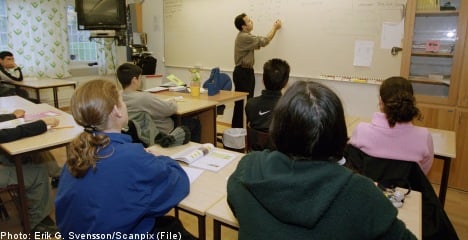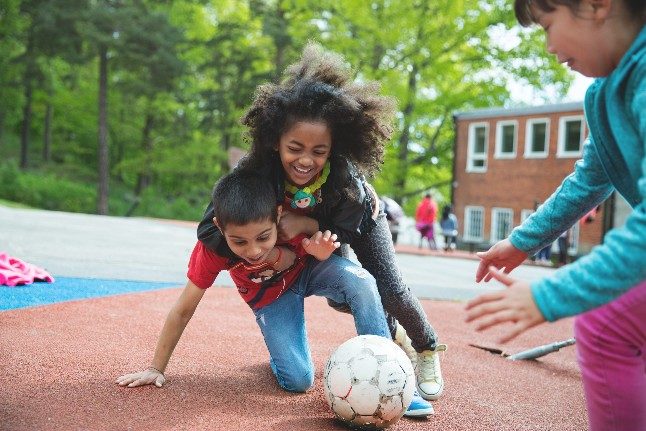Torsås, the southernmost municipality in Kalmar County, ranked highest among Sweden’s 290 municipalities in a review carried out by the National Union of Teachers in Sweden (Lärarnas Riksförbund – LR).
Sweden’s worst schools, on the other hand, can be found in Södertälje, a town of about 80,000 residents located about 30 kilometres south of Stockholm, according to the rankings, which are published in Skolvärlden, a monthly magazine published by LR.
“We’re forced to use a big part of the money that ought to go to schools to give people food for the day and somewhere to live,” Thomas Johansson, chair of the Södertälje council’s education committee, said in a statement.
Nearly one in ten of Södertälje’s residents are refugees from Iraq who have settled in the town since 2003.
The union based its ranking on six criteria, including cost per student, the ratio of teachers, as well as the rate at which students continue on to high school.
According to the union, the ranking shows that Sweden’s schools aren’t following the country’s school law, which stipulates that all children should have access to a comparable education.
As an example, the study highlights the fact that Arjeplog in Sweden’s far north spends 66,500 kronor ($9,200) per student each year, while annual outlays in Lessebo in southern Sweden total only 32,300 kronor per student.
“It’s totally inappropriate that the differences are so great. It means fewer teachers, worse buildings, older teaching materials, larger class sizes,” LR head Metta Fjelkner told the magazine.
Following Torsås in the ranking is Pajala, a municipality with about 6,000 residents situated in Sweden’s far north, along the border with Finland. The ranking’s number three spot was occupied by Mörbylånga, a town with fewer than 2,000 residents located on the southern part of the Baltic island of Öland, off Sweden’s southeastern coast.
Other municipalities which found themselves at the bottom of the rankings included Norrtälje, a municipality of just over 16,000 residents located about 70 kilometres northeast of Stockholm, and Vårgårda in southwestern Sweden, which has a population of about 11,000.
The union’s study also revealed large differences in the other areas compared in its ranking, prompting it to propose a number of measures to address the discrepancies, including a state takeover of the financial management of primary schools.
In addition, all municipalities should be guaranteed a minimum sum every year, with financing coming from a shift in the allocation of tax resources.



 Please whitelist us to continue reading.
Please whitelist us to continue reading.
Member comments